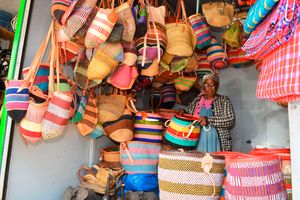
Accessibility to education is a right not a privilege.
The most dispiriting and saddening picture emerges in Kenya after every final primary school exam results. While some children and their families celebrate the progression to secondary school, there are thousands more unsure of starting secondary school. This year is no different.
The media is full of stories of children pleading for financial help to start secondary school. Such a picture negates the table of excellence that follows every final school exam that rank schools and best students.
The irony is that some of those best students are the same who end up missing out on secondary school for lack of fees. It has always been an unfair way of grading performance excellence in education in Kenya when there are schools unable to compete for lack of resources.
Competition must be based on a given standard that applies across all schools. As things are in Kenya, there is no such standard in education especially in terms of material resources. It is the same schools that top the league table time and again. Most of those schools were those built by the colonial governments, bar one or two post-independence schools that filter onto the top-performing schools sometimes due to political influence. Marginalised areas and those with no political influence will always lag in education.
Quality education
It is becoming a lottery to get quality education in Kenya. A geographical location closer to the power always stands a chance to shine and command funding just based on their relationship with the government of the day. Like many other aspects of Kenyan lives, education has also become embroiled in politics and used as carrot and stick to woe voters and reward them based on whom they voted for. Tribal leanings also determine which tribe attracts the best schools and public service.
Right to education is a fundamental human right. UN Convention on the Rights of a Child focuses on education. This convention and many other UN instruments put obligation on member States such as Kenya. Failure to afford every child equal opportunity to education is a deviation by Kenya to the UN Convention on the Rights of a Child. Those children that struggle to access funding for secondary and university education tend to be mostly from poor families.
Explosion of pregnancies
Girls are at more risk of dropping out from education due to lack of fees and being forced into early pregnancy and underage marriage. The explosion of pregnancies among school-going girls should be of a concern to any government. The more the government pays lip service to education, the more girls in particular, are going to be put at risk. Child poverty and child labour are a huge problem across Africa and lack of accessibility to education clearly plays a part in exacerbating the problem.
Bursaries put in the hands of politicians do not seem to reach the right recipients. Otherwise, we won’t have children begging for money to go to school. The best way to use the money is to pay directly to the needy students. Leaving bursaries to politicians is paving a way to corruption where the money could be swindled. Politicians, whether we like it or not are the cradle of corruption. They cannot therefore be trusted with the future of school going children. Who knows whether the bursaries for poor children are being used to take politicians’ family to private schools? The mind boggles sometimes.
The billions used to keep politicians in life of extravagance could be better used if it is spent on good healthcare system and education for all the children. One cabinet secretary in Kenya has several expensive cars at his or her disposal when one could be enough. The money for extra cars could educate number of children and that should be the government’s focus. Billions of shillings are still being spent by politicians to make useless and non-beneficial trips abroad. Could this money not be channelled to pay fees for the poor children begging for fees?
The priority in the government is still back to front. The voters and their children do not benefit from the taxes collected. The government’s key role should be investing in its human resource. If it does not pay for better education for school children now, Kenya won’t have an educated and skilled workforce to rely on in future.
Our society is stratified between the rich and the poor. The best way to bridge the gap in opportunities is to ensure that education especially in Primary and secondary school is not only free but of the same standard and accessible to all children equally. Education poverty must therefore become a thing of the past in Kenya.
Accessibility to education is a right not a privilege. Kenya is therefore in contravention of UN Convention on Rights of a Child the more it fails to transition children to further education. No child should ever have to beg for school fees again. A poor child has as much right to education as the child of a politician.
Ms Guyo is a legal researcher. [email protected]. @kdiguyo













